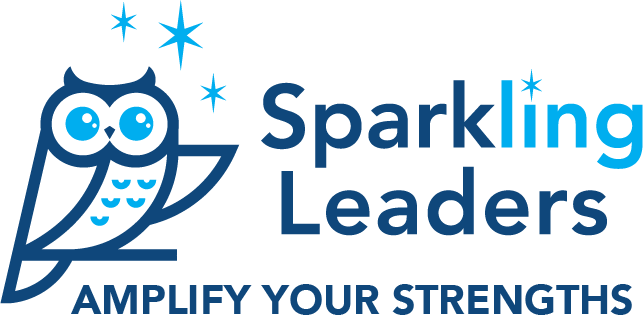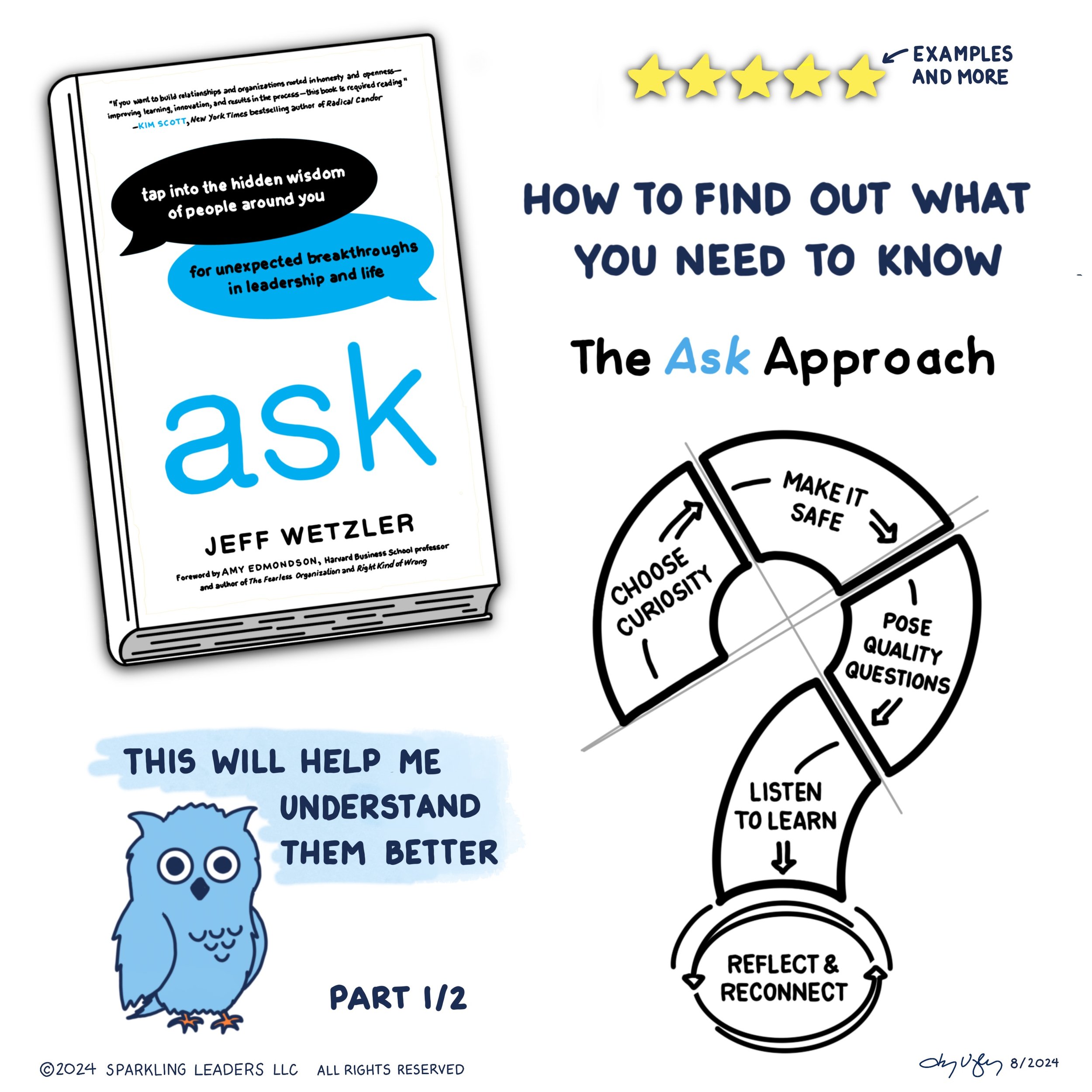Ask Book Summary
I enjoyed Jeff Wetzler's, Ask: Tap Into the Hidden Wisdom of People Around You for Unexpected Breakthroughs In Leadership and Life and have been thinking about how to synthesize an actionable summary.
Underlying theme: there are a lot of things you need to know that others are not telling you. There are many reasons for people not to share information such as:
They are worried about the impact on you or on them
They can’t find the right words
They don’t feel sharing would be valued by you
They lack the time and/or energy
Ask helps us figure out how we can help others want to share information with us - useful techniques for our professional and personal lives! To help others share information you need, try Jeff’s Ask Approach:
Choose to be curious so you can make new discoveries and connections
Make it Safe for people to tell you hard things
Pose quality questions to help tap into the wisdom of others
Listen to hear what others are trying to tell you
Reflect on what was said and reconnect to turn your new knowledge into action
Another favorite part of the book for me is Jeff’s introduction to his mentor Chris Argyris’s work on the Left-hand or Two-column exercise and Ladder of Inference.
Left-hand Column Exercise:
Draw a vertical line down the middle of a blank sheet of paper.
On the right-hand side, record a dialogue from a challenging interaction.
On the left-hand side, write thoughts and feelings you experienced as you interacted. Then write what you think the other person was thinking and feeling across from their dialogue components.
Examine what you have written thinking about the difference between what was said and not said.
What do you notice? What do you wish you knew? What do you wish you could have shared?
Modified Ladder of Inference
Our assumptions, biases, identity, life experiences, values, ways of being, etc., referred to hereafter as our stuff, shape how we view and react to everything we encounter.
Each situation we encounter is also filled with more information than we can process.
We select what information to focus on based on our stuff.
We then process the information we selected quickly based on our stuff.
We quickly draw conclusions based on our focus and our stuff.
We then create the story we tell ourselves about the situation.
Our story then shapes the steps we take such as our actions, reactions, decisions, and moves.
When the situation involves others, everyone has their own Ladder that leads to their own story and their own steps.
I was first introduced to Argyris’s work in early 2020 by Sarah Biggerstaff, Lecturer in the Practice of Leadership at Yale School of Management. Sarah’s teaching had a big impact on me through the pandemic as I was living apart from my family. I created several Left-Hand Columns for dealing with family and team issues. Thank you, Sarah, for helping me understand the importance of communication, which made my experience manageable!
I hope this summary can help others too.
Let me know how you use the Left-Hand Column exercise and Ladder of Inference.
Wetzler, Jeff. Ask: Tap Into the Hidden Wisdom of People Around You for Unexpected Breakthroughs In Leadership and Life (Mar 2024)


